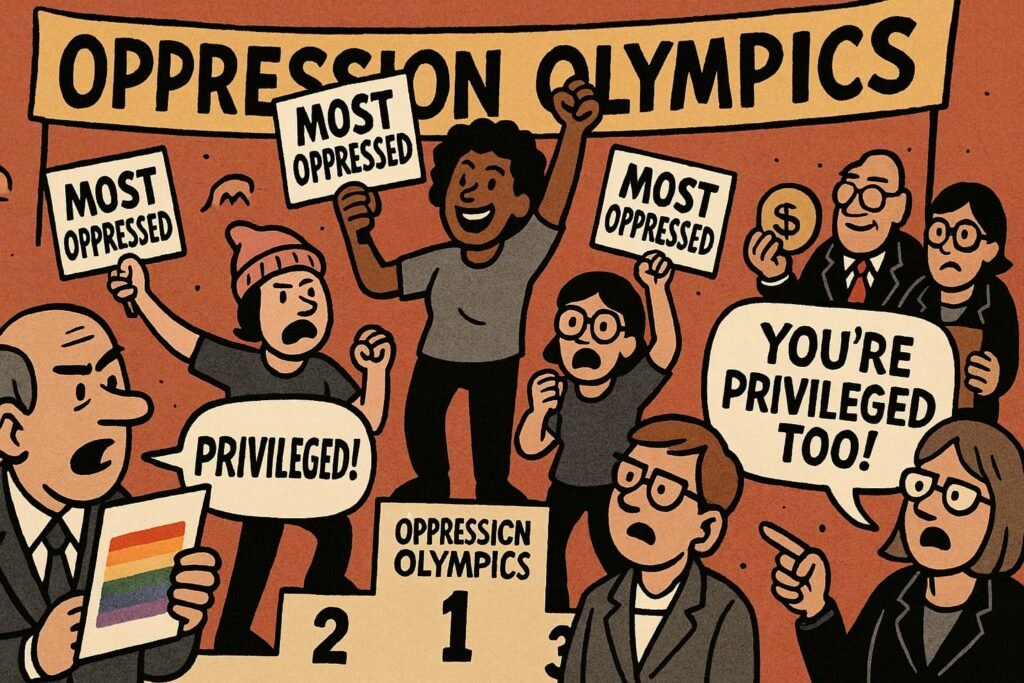Privilege Accusations Explained – How to Push Back
“Check your privilege.” It’s the insult dressed up as moral wisdom. The idea is simple: if you’re not at the bottom of the oppression ladder, your opinion is automatically worth less. Add intersectionality — the theory that identities overlap into endless layers of oppression — and suddenly everyone is both victim and villain.
Here’s how it works, and how to respond when the word “privilege” gets thrown at you.
Table of contents
What Is Privilege?
Privilege, in activist terms, means the invisible advantages you supposedly carry because of your race, gender, sexuality, or class. If you’re white, you have “white privilege.” If you’re male, you have “male privilege.” And so on.
The point isn’t whether you personally worked hard or struggled. Privilege claims you’re guilty by category.
What Is Intersectionality?
Intersectionality is the idea that different forms of oppression overlap. For example: a black lesbian woman is “more oppressed” than a white gay man. The more labels you stack, the higher your oppression score.
Sounds neat on paper. But in practice, it creates an infinite loop of accusations. Everyone is privileged compared to someone else.
Why Privilege Is a Trap
Privilege works like this:
- It can’t be disproved. If you deny it, that’s “proof” you have it.
- It ignores individuality. Your personal story doesn’t matter — only your label.
- It divides endlessly. Even the accuser can be accused of being privileged compared to someone else.
It’s not an argument. It’s a silencing tactic.
How to Push Back – 4 Simple Ways
1. Show the Infinite Regression
If privilege always exists relative to someone else, then everyone is guilty. Even the person accusing you is “privileged” compared to another group. Where does it stop?
2. Call Out the Double Standard
If judging people by skin colour or gender is wrong, then doing it under the name of “privilege” is still wrong. New label, same discrimination.
3. Point Out the Dead End
If we’re all busy ranking oppression points, then solidarity disappears. Instead of uniting, privilege theory keeps everyone suspicious of each other.
4. Bring It Back to Merit
Ordinary people judge others by effort, skill, and character — not by identity scorecards. That’s what actually builds fairness.
Don’t Play the Game
Privilege and intersectionality turn identity into a permanent blame game. They never reach the individual — only endless categories of guilt.
The easiest defence is to flip the script: if everyone is privileged compared to someone else, then maybe privilege isn’t the trump card it’s claimed to be.
Related Reading:
FAQ
What does privilege mean in activism?
It means unearned advantages tied to your identity, not your personal life.
What’s the problem with intersectionality?
It divides people into endless groups, making everyone both oppressed and privileged at the same time.
Is privilege real?
Yes, people have different advantages in life. The problem is turning it into a blanket accusation that shuts down debate.
How do you respond when accused of privilege?
Use one of the four replies above: show the infinite loop, call out the double standard, point out the dead end, or bring it back to merit.



